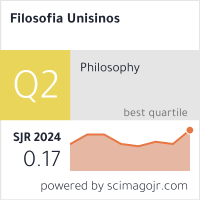Does moral responsibility require mental time travel? Considerations about guidance control
DOI:
https://doi.org/10.4013/fsu.2018.191.10Resumen
The debate about moral responsibility for one’s actions often revolves around whether the agent had the ability to do otherwise. An alternative account of moral responsibility, however, focuses on the actual sequence that produces the agent’s action and which criteria it must fulfil for the agent to be considered morally responsible for her action. Mental Time Travel allows the agent to simulate a possible future scenario; therefore, it is relevant for the selection of a course of action. I will argue that implicit prospection is a rudimentary form of Mental Time Travel and that the role that implicit prospection, or non-rudimentary forms of Mental Time Travel, plays in the production of intentional actions helps explain guidance control and, hence, moral responsibility.
Keywords: implicit prospection, guidance control, feeling the future, plan, intention.
Descargas
Métricas
Descargas
Publicado
Cómo citar
Número
Sección
Licencia
Concedo a revista Filosofia Unisinos – Unisinos Journal of Philosophy o direito de primeira publicação da versão revisada do meu artigo, licenciado sob a Licença Creative Commons Attribution 4.0 (que permite o compartilhamento do trabalho com reconhecimento da autoria e publicação inicial nesta revista).
Afirmo ainda que meu artigo não está sendo submetido a outra publicação e não foi publicado na íntegra em outro periódico e assumo total responsabilidade por sua originalidade, podendo incidir sobre mim eventuais encargos decorrentes de reivindicação, por parte de terceiros, em relação à autoria do mesmo.










